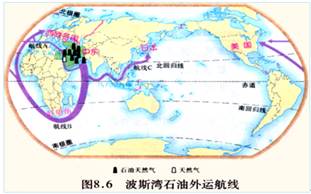(16分)小明是学校电视台的小记者,为配合学校德育工作的开展,他抓拍了以下“校园镜头”,想以此为素材制作一个专题短片,以引起大家对某些现象的思考。
镜头一:考试时,小张东张西望,还偷偷拿出准备好的纸条抄袭。
镜头二:教室里,小颖拿着解答不出的数学题请教李伟,李伟明明会做却推说不会。
镜头三:放学后,同学们纷纷背着书包离开教室,但教室的地上却一片狼藉。
学校要求各班观看短片并组织召开主题班会。如果你是班长,请做好下列准备工作:
请你为本次主题班会设计一个主题。(2分)
请任选一个镜头,对镜头中同学们的言行进行简要评析。(6分)
为了提倡同学们努力做一个有责任心的公民,班委会准备向全校发出倡议。请你把下面倡议书的内容补充完整。(8分)
倡议书
同学们:
美好的校园环境、和谐的社会氛围需要我们大家共同创造,需要我们每个人扮演好自己的角色,承担起自己的责任。为此,我们倡议:
①在学校生活中,我们要______________________________________。
②在家庭生活中,我们要______________________________________。
③在社会生活中,我们要______________________________________。
④我们还要学会 ______________________________________。
××班班委会
×年×月×日
(1)我的责任我承担;我承担,我快乐;我承担,我无悔等
①小张考试作弊,既是不诚信的行为,也是对自己不负责的表现。
②李伟没有承担起关爱他人的责任,且缺乏合作精神。
③同学们没有承担起保持教室清洁卫生的责任,也没有自觉维护班级利益。
(3)①做一个勤奋学习,文明礼貌的好学生;②做一个孝敬父母的好孩子;③做一个遵纪守法的好公民;④不言代价与回报,自觉承担责任。
题目分析:(1)三个镜头里的现象表明,一些学生没有承担好对自己、对他人、对社会的的责任,缺乏责任心,因此这个主题班会可以结合教材知识,围绕承担责任来确定主题,如“我的责任我承担”,“我承担,我无悔”,“我承担,我快乐”等,任选一个,合理即可。(2)评析镜头里同学的行为,指出其错误即可,镜头一是小张考试作弊,是不诚信,对自己不负责任的行为;镜头二是李伟不关心同学,没有承担对他人关爱的责任,缺乏团结合作精神;镜头三是同学们没有承担起保持教室的清洁卫生,维护集体利益的责任。作答时,将其分别阐述出来即可。(3)在不同的环境中,我们扮演者不同的角色和身份。在学校,我们是学生,学生要做一个勤奋学习、文明礼貌的学生;在家里,我们是父母的子女,我们要做一个孝敬父母的好孩子;在社会生活中,我们是一个公民,我们要遵纪守法;总之,我们要学会不言代价与回报,自觉承担责任。填空时,抓住不同的角色,写出相应的责任,言之有理即可。

